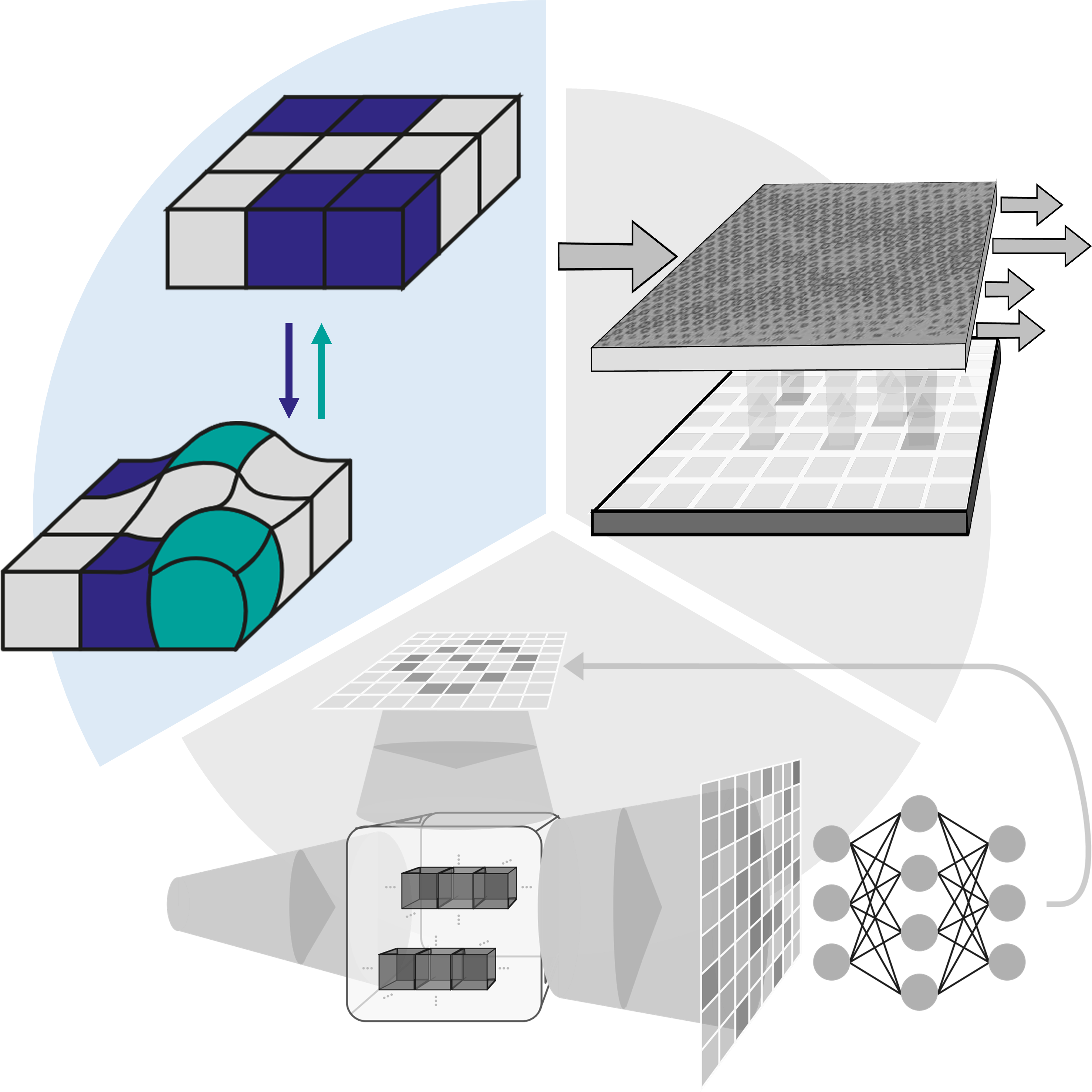Join Us
How to Apply
- Letter of motivation: summary of your past research experience, meaningful summary of your PhD and master’s thesis
- Detail in your letter why you believe you are the right person, what you expect from us and the topic
- Curriculum Vitae and list of publications
- Transcript of records of your master’s program
- Two contacts for reference letters
Topic and Tasks
Our team at the University of Mainz (Germany) is searching for an outstanding postdoctoral researcher to work on photo-chemically regulated microprinted hydrogels. The aim is to develop a new, brain-inspired information processing technology by combining soft matter and (photo-)chemical reaction networks with free-space and integrated photonic devices. This new neuromorphic hardware concept offers unique advantages in terms of scalability, plasticity (i.e., adaptation for learning) and integrability.
Your task will be synthesizing photoswitch molecules, incorporating them into microprinted, micropatterned hydrogels, and study and tune the complex photoresponsive shape change of the gel objects. The hydrogel preparation and high-resolution patterning will take place in a microfluidic chip, by using a UV photoprojector with digital micromirror device (DMD). The resulting hydrogel unit will be transferred to the collaborating laboratories (Trento, Glasgow) and will be implemented as a core unit of large-scale optical networks and hybrid photonic devices.
Team and Position
This project is part of the PhotoNeuroGel international collaboration of three early career researchers, funded by the Volkswagen Foundation’s NEXT – Neuromorphic Computing initiative. Read more. You will be part of the Mainz project team led by Dr. Brigitta Dúzs, and embedded in the Walther Group on Life-Like Materials and Systems (www.walther-group.com). You will closely collaborate with researchers in Trento and Glasgow working on machine learning and photonic integrated devices. The position is fully funded and available from November 2023 and has a duration of 2 years. You will be hired according to the German Salary Scheme with full benefits.
Join our team to do creative, cutting-edge research in an emerging multidisciplinary field. We provide you with an inspiring, collaborative and multinational environment with ample opportunities to develop. Brand new synthetic and analytical infrastructure and facilities are available due to generous support by the University of Mainz and the Volkswagen Foundation.
Expected Candidate Profile
Selected References
- Photomechanical polymer hydrogels based on molecular photoswitches, J. Polym. Sci. 2021, 59(20), 2246.
- Wavelength-Gated Adaptation of Hydrogel Properties via Photo-Dynamic Multivalency in Associative Star Polymers,
Angew. Chem. Int. Ed. 2021, 60, 4358. - Functional Rhythmic Chemical Systems Governed by pH-Driven Kinetic Feedback, ChemSystemsChem 2023, 5, e202200032.
